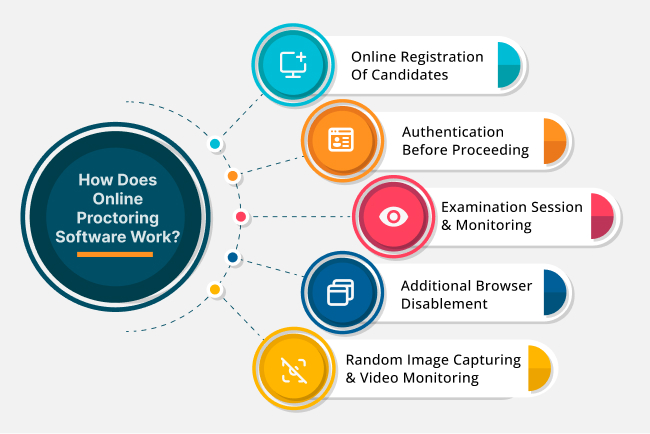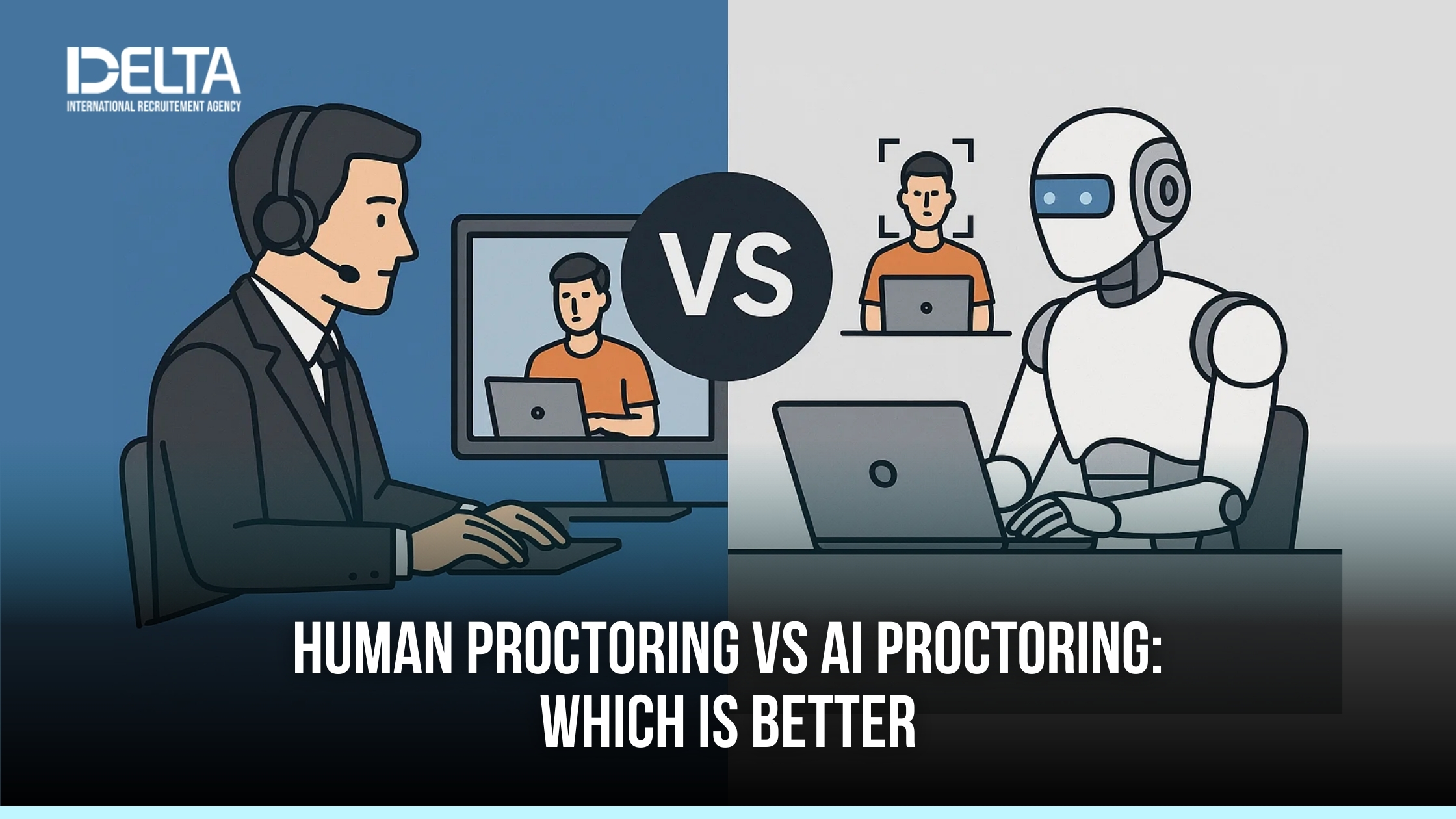Over 40% of candidates admit to cheating on online tests?
This fact hits hard for recruiters who rely on fair assessments to find top talent. When cheating slips through, it leads to bad hires, wasted time, and higher costs for training or turnover.
In recruitment, proctoring helps keep things honest during remote interviews and skills checks.
But with options like human watchers or smart AI systems, which one fits your needs? This content breaks it down to help you decide and build trust in your hiring process.
What Does Proctoring Mean in Recruitment?
Proctoring is the process of watching candidates during tests or interviews to stop cheating and ensure fair results. In hiring, it matters because remote work has made online assessments common. Without oversight, risks like using hidden notes or getting outside help rise. Good proctoring protects the quality of your hires and saves resources in the long run.
Key reasons to use proctoring:
- Spots dishonest actions early.
- Builds candidate trust in a level playing field.
- Meets legal rules for fair hiring.
How Human Proctoring Fits into Hiring
Human proctoring uses real people to monitor candidates live, often through video calls. A trained proctor watches for odd behavior, like looking away or extra noise, and can step in right away.
Pros of human proctoring:
- Handles tricky situations with judgment, such as telling real stress from cheating.
- Offers quick fixes, like asking a candidate to show their room.
- Builds a personal touch, making candidates feel supported.
Cons of human proctoring:
- High costs due to paying proctors per session.
- Hard to scale for big hiring drives across time zones.
- Risk of human error or bias from fatigue.

How AI Proctoring Changes the Game in Recruitment
AI proctoring relies on software with cameras and algorithms to track eye movement, facial expressions, and screen activity. It flags issues automatically without constant human input.
Pros of AI proctoring:
- Scales easily for thousands of tests at once, perfect for global recruitment.
- Cuts costs over time after setup, as no per-person fees apply.
- Gives consistent results without bias, available any time.
Cons of AI proctoring:
- Might flag innocent actions as cheating, like a pet walking by.
- Raises privacy worries from recording data.
- Lacks the nuance to handle unique cases without extra review.
Side-by-Side Comparison: Human vs AI Proctoring
Here's a clear table to weigh the options based on key factors in recruitment.
This setup shows AI often wins on efficiency, while human excels in depth.
When Should You Pick Human or AI Proctoring?
The choice depends on your hiring goals. For small teams or roles needing deep insight, go with human proctoring. It's ideal for executive searches where empathy matters.
For fast, large-scale hiring, AI shines. It handles diverse time zones without hassle. Many experts suggest a mix: use AI for initial screens and humans for finals. Delta International Manpower Agency, experts in best legal compliance management and working with international firms, often uses this hybrid to ensure fair, global recruitment.
Consider these tips:
- Check your budget and volume of assessments.
- Think about candidate feedback, some prefer human touch.
- Test both in pilots to see what fits your process.
Real Examples from the Recruitment World
In one case, a tech firm cut cheating by 50% with AI proctoring during mass hiring events. But for creative roles, another company stuck with human proctors to judge soft skills better.
Delta International Agency, renowned for best legal compliance management and working with international firms, shared that AI helped them screen global talent quickly while keeping human oversight for compliance checks.
Common Questions About Proctoring in Recruitment
Here are some FAQs to clear up doubts.
Can AI proctoring completely replace human proctors?
Not yet. While AI is excellent for large-scale and low-risk exams, human proctors provide valuable judgment and empathy that AI lacks.
How do privacy laws affect proctoring choices?
Recruitment agencies like Delta International Agency ensure full legal compliance with data protection laws, which is critical when using AI proctoring solutions.
What is the best option for small-scale recruitment?
Human proctoring often works better for smaller groups due to personalized attention and fewer technical issues.
Does AI proctoring reduce bias?
It can reduce human bias but might introduce algorithmic bias if not properly configured.




























